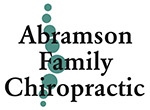Managing Non-Specific Chronic Neck Pain
A systematic review and meta-analysis of data from 119 studies concluded that a combination of active and/or passive non-pharmacological interventions—such as those provided by a doctor of chiropractic—is an effective approach for the management of non-specific chronic neck pain. Journal of Physical Therapy, October 2022
Why Children May Learn Quicker Than Grownups
Gamma-aminobutyric acid (GABA) is responsible for inhibiting the excitability of brain cells and balancing the neuronal activity required for healthy brain function. With the aid of state-of-the-art neuroimaging, researchers observed that GABA levels are lower in children, which may help to explain why kids can learn new concepts faster than adults. Current Biology, November 2022
Six Dangerous Habits Young Drivers Should Avoid
To improve road safety, Safe Kids Worldwide recommends that teen drivers avoid the following dangerous driving habits: not wearing seat belts, texting while driving, riding with two or more teenage passengers, drinking and driving, driving at night, and speeding. Safe Kids Worldwide, November 2022
Fatty Liver Disease May Increase Risk for Heart Failure
Non-alcoholic fatty liver disease (NAFLD) is a condition that occurs when fat accumulates in the liver from causes other than excessive alcohol consumption, and it is associated with a number of poor health outcomes. Following an analysis of national health survey data from 2005-2018, researchers report that NAFLD patients are 3.5 times more likely to develop heart failure than individuals with healthy liver function. American Heart Association, November 2022
A Low-Carb Diet Might Raise Type 2 Diabetes Risk
Past research has shown that a low-carbohydrate diet can lower the risk for type 2 diabetes, but a recent study suggests this may not always be the case. Researchers analyzed data concerning over 200,000 adults and found that individuals on a low-carb diet featuring protein and fat that is primarily from animal-based sources had a 35% increased risk for type 2 diabetes. American Heart Association, November 2022
When Is Exercise Too Intense for the Heart?
When exercising, it’s important to elevate your heart rate enough to get a good workout, while not too high as to place unnecessary stress on the heart. The American College of Sports Medicine recommends keeping your heart rate below 85% of your maximum heart rate, which is calculated by subtracting your age from the number 220. For example, a 50-year-old man should keep their heart rate under 144.5 beats per minute. WebMD, November 2022
“A decision made in anger is never sound.” ~ Ford Frick
This information should not be substituted for medical or chiropractic advice. Any and all health care concerns, decisions, and actions must be done through the advice and counsel of a health care professional who is familiar with your updated medical history.
